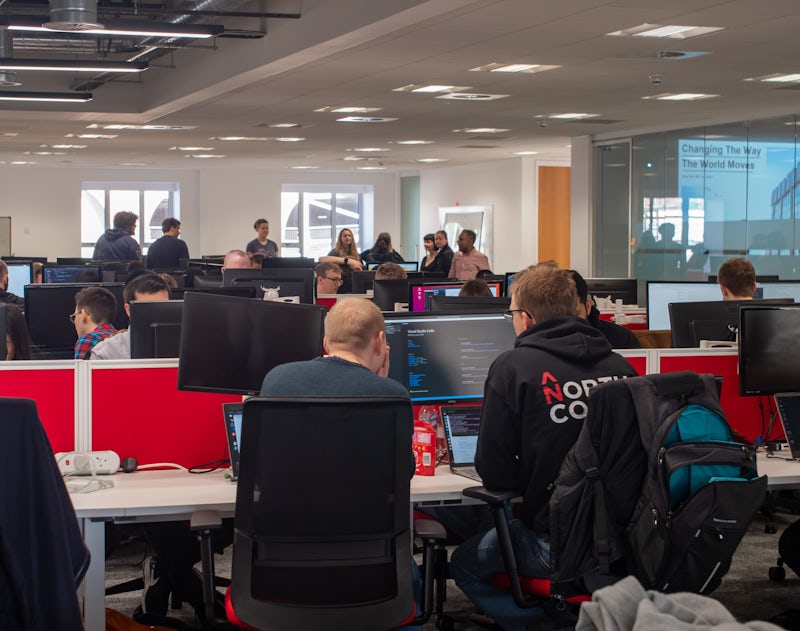
Cloud Engineering is one of the most in-demand skill-set in the tech industry. It’s a technical and specialised role, so if you have no current tech experience, it can be hard to know where to start. However, there is a way to steer your career into this rapidly growing sector.
What is a Cloud Engineer?
To start with, it’s good to know what you’re getting into. Cloud engineers develop and implement cloud-based architecture and services. They work with cloud computing technologies like Amazon Web Services (AWS) to deploy, monitor, and maintain applications, as well as ensure quick performance and strong security.
Entry level positions typically start at an annual salary of £28k, with an average salary of £35k for juniors. A cloud engineer’s salary can then rise quickly to an average of £60k per year, and reaches even higher for senior positions.
In terms of non-technical skills, cloud engineers benefit from being good communicators in order to work closely with colleagues and clients. They will also need to be creative and good problem solvers, to allow them to come up with innovative cloud-based solutions.
If this all sounds like a good fit for you, it’s time to look at the technical side!
Get Started Coding
In order to pursue more specialised knowledge, you first need to start with the basics. A good first step is to choose a programming language like JavaScript and Python, and start to learn the fundamentals.
There are plenty of online courses to help you get started for free and at your own pace.
If you’ve started an application with Northcoders, you’ll be able to access our free JavaScript Basics course, designed to teach the fundamentals to complete beginners to coding.
This base knowledge will help you be more familiar with coding and more confident in your career choice. You can then turn to taught courses to explore the complexities of cloud networking, which can be challenging to learn without guidance.
Two good ways to pursue this are through a university degree or an online course. A university degree can take a long time to complete, so since they’re not a requirement to get into tech, more and more people are turning towards bootcamps.
Bootcamps are a great way to quickly and efficiently specialise into your chosen area, so let’s have a closer look at them.
Join a Bootcamp
There are a lot of bootcamps out there, so it’s important to find one that’s the right fit. Have a look at what the curriculum covers, and especially reviews from past students to see if they were satisfied with the level and quality of teaching.
Our own Northcoders Cloud Engineering bootcamp can help you go from complete beginner to junior cloud engineer in just 13 weeks. We’ll cover everything you need to know, from JavaScript fundamentals to creating infrastructure and deploying multiple applications to Kubernetes clusters on AWS.
Want to have an even more in depth look? You can click here to have a look at our curriculum.
We’re also proud to consistently get glowing reviews from our graduates, as well as ratings of 4.4/5 Course Report, 4.8/5 Facebook, and 4.6/5 SwitchUp.org.
Apply to Junior Rules
Once you have the necessary skills, you’ll be ready to look for work as a cloud engineer! Our graduates go on to apply directly for junior cloud engineer roles. Here’s a tip: cloud engineer roles can also sometimes be advertised under the name ‘platform engineer’ or even ‘DevOps engineer’, so make sure to keep an eye out for those.
Our career coaches will tell you exactly what to expect while you’re studying on our bootcamp, but the hiring process in tech can take a few months. You can use that time to further your knowledge, for example by learning new tools, working on a project, or studying towards an AWS cloud engineer certification.
Are you ready to get started? Northcoders can help with every step of the journey detailed in this article. You can create an application here and make the first move towards your future cloud engineering career.